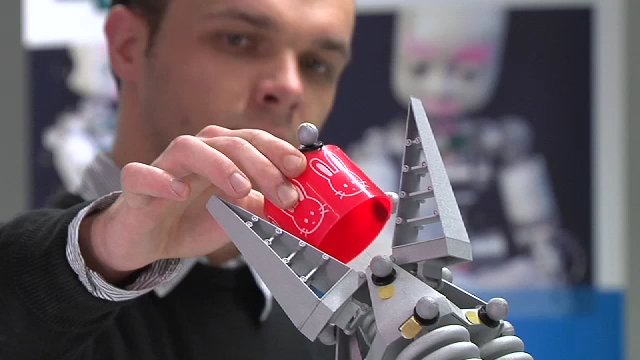Invited Speakers

Prof. João Filipe Ferreira
University of Coimbra
João Filipe Ferreira was born in Coimbra, Portugal, in 1973. He received the B.Sc. (five-year course), M.Sc., and Ph.D. degrees in electrical engineering and computers from the University of Coimbra, Coimbra, in 2000, 2005, and 2011, respectively.
He has been an Invited Assistant Professor at the University of Coimbra since 2011. He has also been a researcher at the Institute of Systems and Robotics (ISR), University of Coimbra, since 1999 (Integrated Researcher since 2011). His main research interests are spread out through three broad scientific themes: Artificial Cognition, Probabilistic Modelling and Autonomous Systems. He is currently the Principal Investigator (PI) for the CASIR project (Coordinated Control of Stimulus-Driven and Goal-Directed Multisensory Attention Within the Context of Social Interaction with Robots - PTDC/EEI-AUT/3010/2012), funded by the Portuguese Foundation for Science and Technology (FCT) and the European Commission via the COMPETE programme.
Dr. Ferreira is a member of the IEEE since 2012, and is currently a member of the IEEE Robotics and Automation Society, the IEEE Systems, Man, and Cybernetics Society, and the IEEE Life Sciences Community.

Dr. Matthias Rolf
University of Osaka
Matthias Rolf received the Masters degree (Diplom, "with distinction") in computer science and the Ph.D. degree (Dr.-Ing., "summa cum laude", WLUG Dissertation Prize 2013) in engineering from Bielefeld University, Germany in 2008 and 2012 respectively. From 2008 to March 2013 he was research fellow at the Research Institute for Cognition and Robotics (CoR-Lab), Bielefeld University, receiving a scholarship 2008-2011 from Bielefeld University and Honda Research Institute Europe (HRI-EU). Since April 2013 he is Specially Appointed Researcher at the Emergent Robotics lab, Osaka University.
In his dissertation ``Goal Babbling for an Efficient Bootstrapping of Inverse Models in High Dimensions'' he proposed and investigated goal-directed exploration schemes mimicking human neonates' exploratory behavior for an efficient learning of sensorimotor skills in robotics systems such as a bionic elephant trunk.
His overall fields of research are developmental robotics, machine learning, neural networks, software engineering and attention systems.

Copyright (c) Katrin Solveig Lohan All Rights Reserved.

